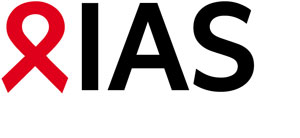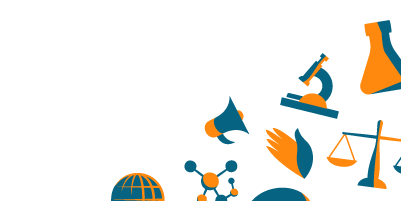 © Copyright 2022 – 2024 IAS – the International AIDS Society
© Copyright 2022 – 2024 IAS – the International AIDS Society
Contact us at [email protected]
This message was written by the Government of Canada in Ottawa, Ontario
Today marks just two weeks until Canada welcomes the global HIV community to Montreal, and virtually, for AIDS 2022, the 24th International AIDS Conference, which takes place from 29 July to 2 August. Re-engage and follow the science is an apt theme for this year’s conference. While the COVID-19 pandemic impacted progress on the global HIV response, it also led to promising advancements in science and innovative ways of connecting people to testing, treatment, prevention and care.
In Canada and around the world, COVID-19 has exacerbated existing inequities for communities already at increased risk for HIV. Re-engaging with the global community in the HIV response requires us to address the health inequities and social determinants of health that contribute to disproportionate rates of HIV among certain populations, including Indigenous communities, the LGBTQ2 community, African, Caribbean and Black communities, people from countries where HIV is endemic, people who inject drugs, and people engaged in the sale, exchange or purchase of sex. To guide this work, there is simply no substitute for lived experience.
A strong and effective HIV response is one informed by communities and organizations who best know the needs of the populations they serve. Many communities, including First Nations, Inuit and Métis communities, have shown remarkable leadership in connecting people to trauma informed and culturally relevant and safe prevention and care. However, stigma and discrimination continue to be barriers for many people when it comes to accessing prevention, testing, treatment and care.
Promoting messages backed by science, like Undetectable = Untransmittable (U=U), helps curtail the barriers created by stigma and discrimination in all their forms towards people living with HIV. Today, HIV is managed effectively with medication and people living with HIV can lead long and healthy lives.
Close collaboration between the science and research community, provinces and territories and local communities has led to significant advancements in facilitating access to prevention, including pre-exposure prophylaxis (PrEP) and post-exposure prophylaxis (PEP), testing and treatment. This collaboration contributed to important research promising new methods for decentralized testing of infectious diseases during the COVID-19 pandemic dried bloodspot testing and HIV self-testing. These methods offer safe, reliable, anonymous and confidential ways for people to determine their HIV status while significantly reducing the barriers to care presented by stigma and discrimination.
Harm reduction strategies, such as needle exchange programs, also help us reach the undiagnosed by connecting people to prevention and testing. Injection drug use is among the most common forms of HIV exposure in Canada. We are supporting community-led interventions that improve access to care and promote prevention, harm reduction and treatment, such as safe consumption sites. These strategies not only help save lives but also provide people using substances with the opportunity to build trusting relationships and live safer and healthier lives.
We believe in building communities and healthcare environments where everyone feels free to be themselves, regardless of age, race, sexual orientation, gender identity and gender expression.
Our commitment to a human rights-based approach extends beyond our borders. We have a steadfast commitment to protecting LGBTQ2 rights internationally and supporting the sexual and reproductive health and rights of women and girls globally, and are proud to contribute toward achieving the Sustainable Development Goals, including ending AIDS as a global health concern by 2030. Canada has been a strong supporter of the Global Fund to Fight AIDS, Tuberculosis and Malaria since it was created in 2002. Prime Minister Justin Trudeau hosted the Fifth Replenishment in 2016. As a partnership, we have saved over 44 million lives. We also remain a steadfast supporter of UNAIDS.
AIDS 2022 is an opportunity for us to come together as a global community, apply the science-based lessons we have learned from COVID-19 to the HIV response, and re-engage our collective efforts so that we can improve the lives of everyone living with, at risk of and affected by HIV and AIDS.
We invite you to visit the Canada Pavilion and our awareness resources on HIV and AIDS to learn more about Canada’s HIV response and help us collectively drive progress towards zero new HIV acquisitions, zero AIDS-related deaths and zero discrimination.
We look forward to welcoming you to Canada for AIDS 2022.
Minister of Health
The Honourable Jean-Yves Duclos
Minister of Mental Health and Addictions
The Honourable Carolyn Bennett
Minister of International Development and Minister responsible for the Pacific Economic Development Agency of Canada
The Honourable Harjit S. Sajjan
Minister of Indigenous Services and Minister responsible for the Federal Economic Development Agency for Northern Ontario
The Honourable Patty Hajdu
Minister for Women and Gender Equality and Youth
The Honourable Marci Ien
Minister of Justice and Attorney General of Canada
The Honourable David Lametti




